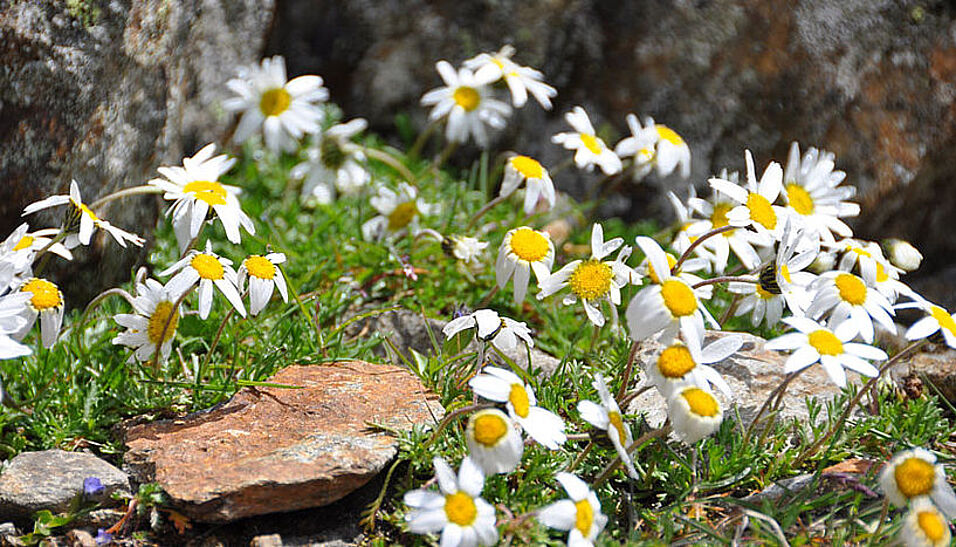Cold-adapted plants and animals migrate to higher regions to avoid rising temperatures. It is unclear, however, whether mountain plants are fast enough to keep up with climate change. A team of ecologists from the University of Vienna and the Swiss WSL, led by Sabine Rumpf and Stefan Dullinger, investigated this question in the Alps and found that nature reacts "late" - both in the extinction of populations at warm locations and in colonization formerly too cold. Delayed extinction is particularly prevalent in species of the highest elevations, which are generally considered to be the most vulnerable to climate change. The study appears in "Nature Communications". [mehr]
Rumpf, S.B., Hülber, K., Wessely, J., Willner, W., Moser, D., Gattringer, A., Klonner, G., Zimmermann, N.E. & Dullinger, S. 2019: Extinction debts and colonization credits of non-forest plants in the European Alps.

